Skilled and kind and charismatic, Krisztián Zsófi is the type of butcher this city needs more of.

Like other people, I’ve spent a lot of time cooking during these months of isolation. I made classic Hungarian dishes because they were comfort food and a good place to start for a beginner. Surely goulash, but also things like consommé and főzelék and tokány and schnitzel (yes, we too eat lots of schnitzel as do the neighboring Austrians). Hungarian food is meat-heavy and I started visiting the butcher shop in the Klauzál Market in Budapest’s District 7. It was pricier than I would’ve liked, but right by my place.
One day, a buff man blanketed in tattoos and with a a mischievous smile stood behind the counter and greeted me cheerfully: “Heló Sir.” I said I needed veal bones for stock. He told me to come back on Saturday, at which point he handed me a plastic bag filled to the brim with thick bones attached to which were chunks of meat. He urged me to simmer them for at least eight hours and waved me off when I tried to pay.
Next time, after I mentioned I was doing schnitzel for the first time, he pounded the filets so thin that it was impossible for me to botch it. Later, when my sister challenged me to make cordon bleu, her childhood favorite, he actually demonstrated to me how to wrap the meat around the stuffing. If you’re familiar with Budapest butchers, you don’t need me to tell you that customer service isn’t what they’re known for — Krisztián seemed to be an exception, so I kept going back to him (as did others, I noticed later).
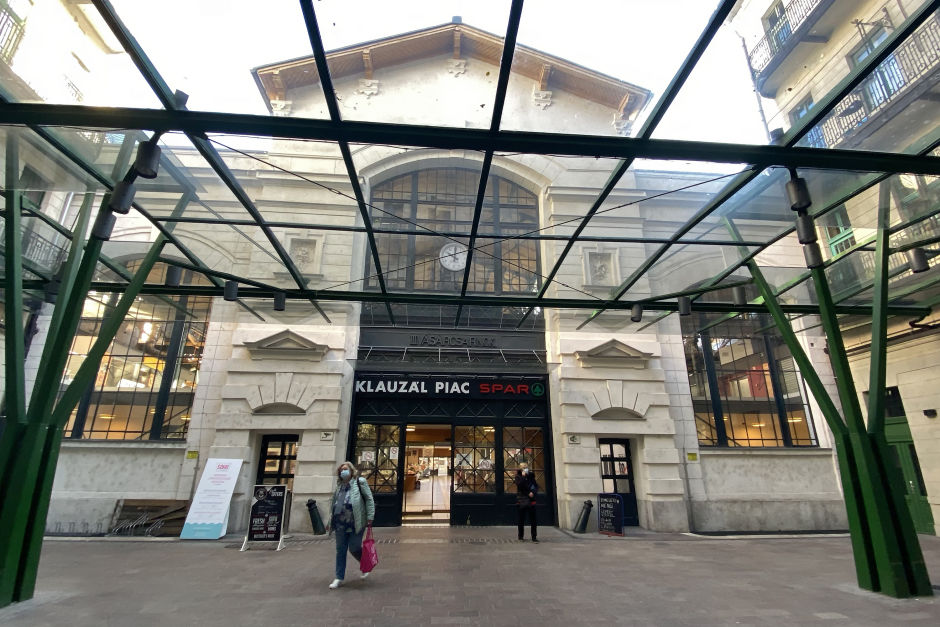
In those weeks, often the only people I saw all day were Krisztián and the fruit and vegetable vendor, Lajos. I missed human interaction and enjoyed their company so I’d take my time during my daily visits to the market. Krisztián was self-assured with strong opinions that often veered into hyperbole. “Salt Bae? He’s a nobody. He works with the easiest cuts that require no skills,” he declared, speaking about the Turkish butcher sensation.
While I stood there, Krisztián would never for a minute stop whatever he was doing, which was usually chopping, slicing, grinding, stuffing, molding, or displaying meat. He seemed to be always working at peak performance with a passion I’d rarely seen in butchers. Months later, it didn’t surprise me when he said that even as a child he wanted to be one. “I was fat and loved eating so being surrounded by meat all the time seemed like a great idea.”
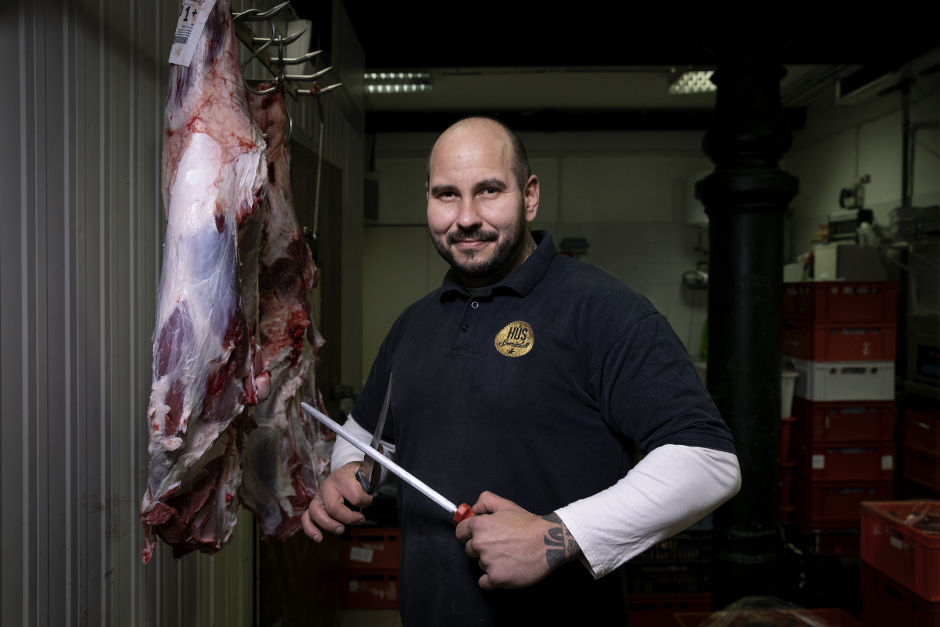
Krisztián is thirty-eight and married, with a daughter. He wakes up at 3:30 a.m. and commutes by rail from his home in Békásmegyer, in the outskirts of Budapest. He and his four colleagues will have accomplished an impressive amount before most city residents are awake: trimmed and cut into shape a hundred kilos of each chicken and pork; vacuum-sealed packages that go off to restaurants; handled incoming deliveries of cold cuts; and arranged the long meat counter.
Once a week, they break down a 180-kilo side of beef. It’s a technically challenging task and his colleagues rely on Krisztián to do it. Once I was permitted to watch. Massive hunks of dark red meat — brisket, prime rib, short plate — yielded easily to the assured movements of his knife. The carved muscles showed polished surfaces, no accidental cuts of the blade. “Everything I know I’ve learned from him,” told me a younger butcher, Zsolti, who stood by and watched him.
My content is free and independent. If you've enjoyed this article, please consider supporting me by making a one-time payment (PayPal, Venmo).
“It’s rare to find someone as skilled as Krisztián,” said Attila Rácz, a respected butcher in Hungary and Krisztián’s former employer at the boutique meat store MészárSteak. “He also has an eye for the counter and is good with customers.” They spent four years together during which time Krisztián was exposed to the workings of an upscale butcher shop. For example, instead of simply piling hunks of meat behind the glass, they’d display elegantly cut pieces that had been pre-seasoned and were ready to be tossed into the oven or the pan at home. (This saves time for the customer and leaves room for imagination to the ambitious butcher.) “It opened up new dimensions for Krisztián,” Attila told me.
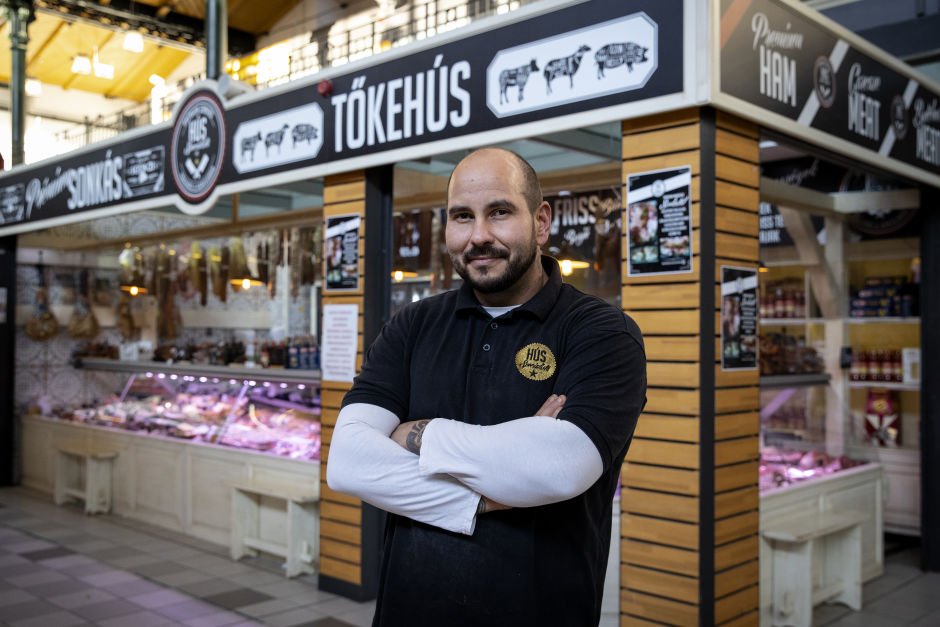
But a passion for meat wasn’t always what steered Krisztián’s life. After a decade of toiling in butcher shops, his career took a bad turn. He left the meat counter and got involved with shady characters. He partied and did a lot of drugs. Occasionally, he’d work as a bouncer in nightclubs. After three years of drifting, he found his bearings when his daughter was born in 2009.
Krisztián became a butcher again and channeled his ambition into improving his skills. After his 15-hour workdays, he’d watch videos online about a new technique, an unfamiliar cut, or a nifty counter display. To keep himself up-to-date, he’s still active on international Facebook groups like Butchers Alliance, where he posts his own creations, like a porchetta jazzed up with Hungarian sausage (kolbász) and paprika. I often find him tinkering with a piece of meat during the mid-afternoon downtime when other vendors take it easy and pass the time on their phones.
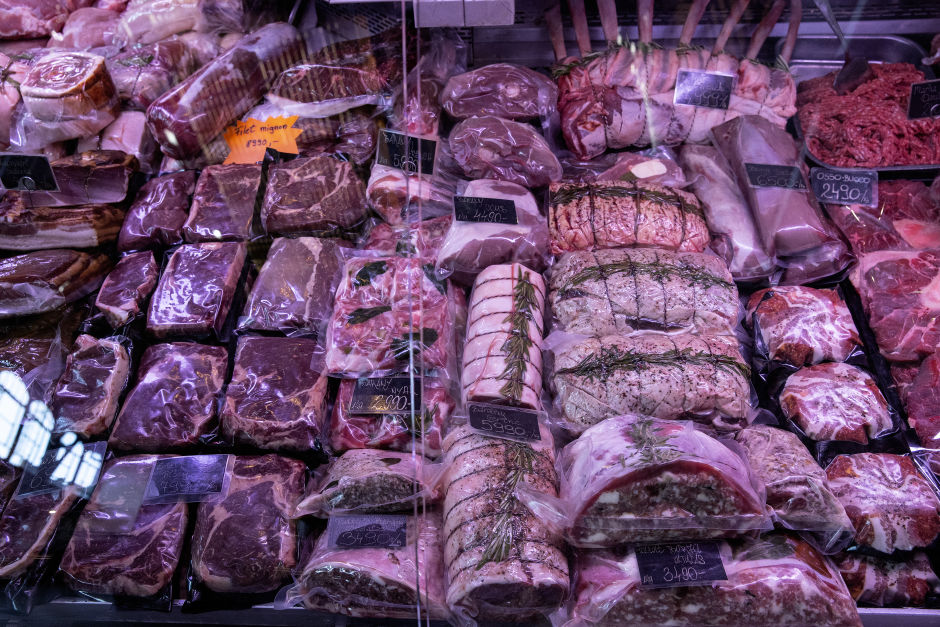
While Hungary’s overall meat consumption is stable, the share of pork has fallen sharply in favor of poultry over the last three decades (they each account for about 45 percent currently). This is also true for the country’s rich array of cured pork products. Part of this decline is related to fewer households raising pigs in the Hungarian countryside — why do it when you can buy meat cheaper at the local supermarket?
And there are also more mundane reasons. “People are afraid of having a garlic breath in the office,” said Krisztián with characteristic confidence. “It’s pathetic.” He lamented the decrease of once-popular treats like csécsi szalonna, a cooked pork jowl coated in paprika and garlic (and the favorite of my late grandfather). “We used to sell them by the kilogram.”
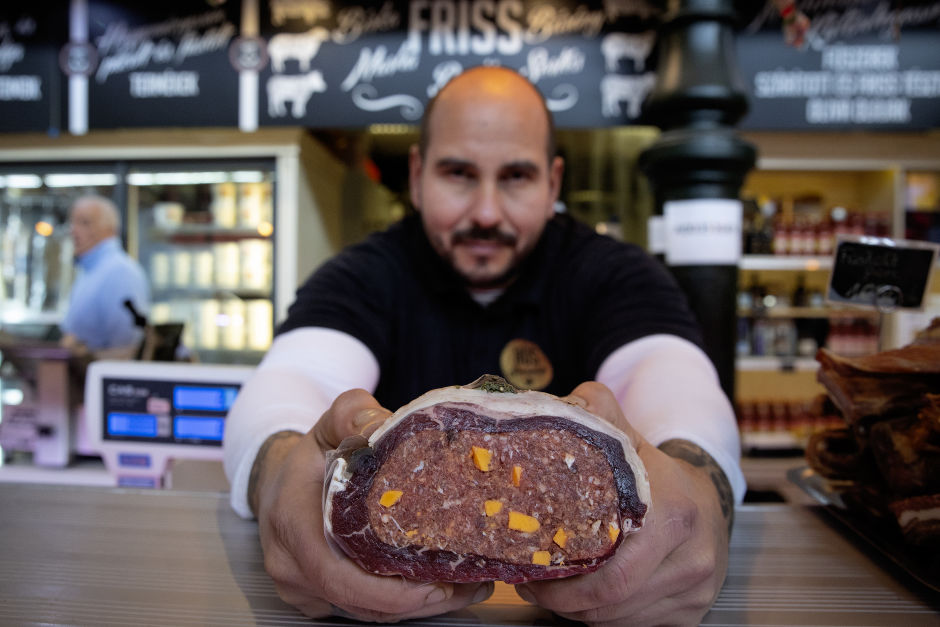
The one shining light has been the global renaissance of the Mangalica pork. This flavor-rich Hungarian breed almost went extinct a couple of decades ago but densely marbled cuts are once again prized by discerning eaters. However, Mangalica meat is expensive — in Hungary it costs almost twice as much as regular pork — which means most of it ends up being exported to wealthier countries. For example, even at Hús Specialista, where Krisztián currently works, they sell just a single Mangalica product.
Though different from other butchers, Krisztián isn’t immune to some of the stereotypes. Attractive women in the market can draw crude remarks from him and his self-aggrandizing flourishes are endless. And there’s his banter with other vendors. “If I sold meat that smelled like this, the authorities would ban me for a lifetime,” said he about a particularly pungent gorgonzola I had bought at the cheese shop next door.
Repeat customers like myself aren’t exempt from playful mockery: when in August Krisztián and Lajos didn’t see me for a week, they speculated that I had to have become a casualty of my own cooking. Also, I’m currently “banned” from buying cuts Krisztián thinks exceed my abilities. “There’s no point. I just know you’d fuck it up.”